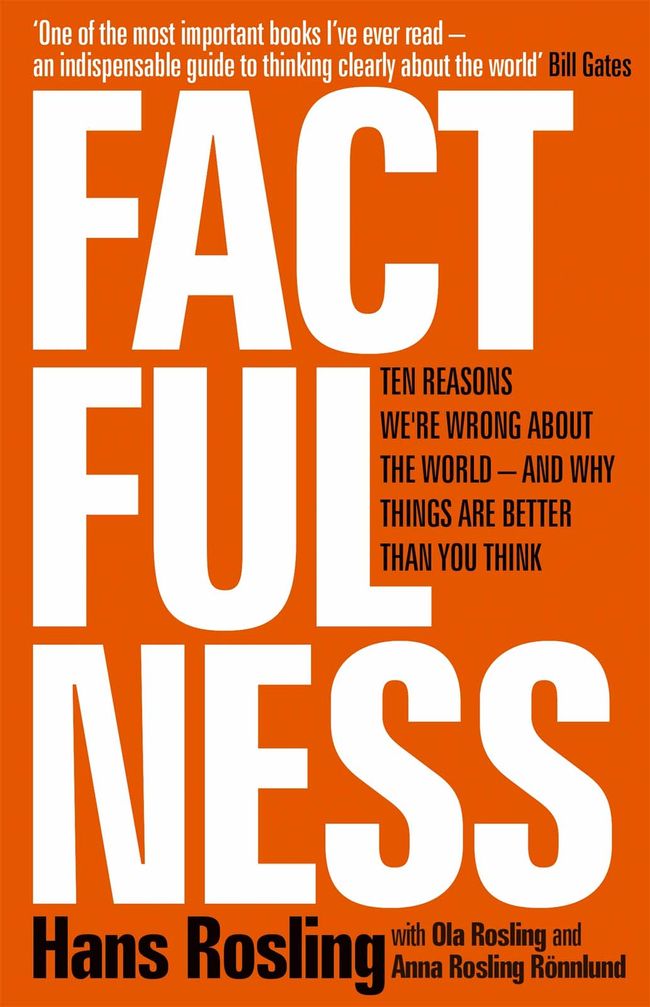- Java代码异味终结者:三大神器实战拆解与深度优化
墨夶
Java学习资料java开发语言
2025年某电商平台因代码异味导致的崩溃事件,让业界震惊——重复代码占项目总量的32%,单个类方法行数超1500行,最终导致日活下降40%。本文通过代码异味检测工具,带你:1秒定位重复代码与魔法数字0误报率识别God类与空方法自动化修复代码异味,减少80%人工检查一、代码异味的科学分类与检测工具选择1.1代码异味的5大死亡陷阱类别典型症状危害等级重复代码相同逻辑在3处以上重复★★★★★God类单类
- 2022.6.7第25次作业雨点评
先予
1.我的楼上❤️王晓莉战友【文章标题】王晓莉的践行打卡【我的感悟】晓莉战友坚持打卡坚持得很好,向你学习。如何过一天就如何过一生,这句话就像一根棍子一样,让我惭愧,提醒我每天都要认真生活。看你每天的要事都感觉得到你在认真生活,早起、读书、运动、做营养餐这些,你选择了一种积极向上的生活方式。你的感恩日志虽然,每件事都是很短的一句话,但也可以让你发现生活的美好,为你赋能。我跟大多数人一样,虽然都知道要养
- 2022-05-17
咖喱酸果
“活干多了,可以选择不干”这两天听到最多的声音就是这句话“躺平”真真切切的来到了每个人的身边主动躺平,被动躺平,集体性躺平世界变化如此之快,我还是落伍的那一群,一种被烧灼的恶臭阵阵袭来,腐蚀着“不忘初心”是早已烂透了,还是我是傻子是众人皆醉我独醒,还是愤愤不平强说愁但确定的是我绝不是正义的化身
- 2018.05.02
每日念好
日念一好,加持幸福!念老公好,现在每天老公坚持6.30分叫孩子起床,送孩子上学,接孩子放学,老公真的是越来越关爱孩子了,我特别开心。念孩子好,今天孩子开始模拟考试,孩子说第一场考试考的比较好,回家也很开心的样子,其实孩子真的是想好好学习的,妈妈相信你只要你付出了就一定会有收获的。念自己好,今天上第七次课了,感觉收获越来越多,我想我一定会继续不断的学习,慢慢提升自己
- 禁止拖动视频进度条来保障视频安全?
菜包eo
教育视频polyv视频安全音视频安全
文章目录前言一、何为禁止拖动视频进度条?二、禁止拖动视频进度条的实现原理三、如何实现禁止拖动视频进度条总结前言在知识付费与企业培训场景中,视频内容安全是核心诉求。学员随意拖动进度条可能导致关键知识点遗漏,甚至助长盗录行为。本文深入解析HTML5播放器禁止拖拽进度条的技术方案,通过精准控制播放行为保障学习效果与内容安全。以企业培训、在线教育为例,探讨如何借助技术手段平衡用户体验与内容防护,为开发者提
- 2018-08-05
执笔写_青春
不要感觉自己很悲哀但至少,你在伤心的时候,可以仰望星空,和你最好的朋友,躺在草地上,听着小草的呢喃细语,月亮姐姐和星星的对话,那种感觉是妙不可言的!偶尔会有调皮的小虫子,在你身旁飞来飞去,那时,你也不会害怕,因为那是到给你光亮和希望的萤火虫在这么美丽的夏夜,有着让人无限的遐想,留下最浪漫的回忆。
- 2021.8.26 回头望,一切都值得
一便士的月光
新的一学年开学了,对比去年的各种鸡飞狗跳和茫然无措,这学期简直进步太大了。1.工作节奏基本能在自己的掌控范围;2.布置工作有了一定的条理和规律;3.布置任务后没有那么的惊慌失措,生怕哪里出现纰漏和漏洞,引起质疑,有则改之无则加勉;4.对人的熟悉程度对开展工作帮助很大,一定程度上取得了一些人的进步,质疑声就少了很多;5.最开心看到今年的一年级团队,呈现出前所未有的合作团结和携手共进,一个关键人物(s
- 力扣 hot100 Day48
qq_51397044
Hot100算法数据结构
35.搜索插入位置给定一个排序数组和一个目标值,在数组中找到目标值,并返回其索引。如果目标值不存在于数组中,返回它将会被按顺序插入的位置。请必须使用时间复杂度为O(logn)的算法。//自己写的classSolution{public:intsearchInsert(vector&nums,inttarget){intleft=0;intright=nums.size()-1;while(left
- 2021-08-25
呜呜呜呜呜呜呜呜
2021年8月24日星期二天气暴雨以后要把文字记录养成睡前必修功课、不管多晚都要坚持写,形成良好习惯!现在是凌晨四点,明天早上又该起不来了……混混沌沌又过了一天。梦想什么时候都有、就是不知道啥什么实现。每天工作、吃饭、睡觉、晚上出门跑步,再没有别的想法了!曾经的打牌、吃饭、女人都戒掉了……年纪大了、累一点的关系都不想去维持、更别提取悦某个人了。好好爱自己、爱家庭、爱孩子做一个有责任有担当的男人,远
- 眉山一名“胆小”的13岁男孩因琐事杀害36岁母亲:根源何在?
田园泥土香教育
眉山一名“胆小”的13岁男孩因琐事杀害36岁母亲:根源何在?(注本文《眉山一名“胆小”的13岁男孩因琐事杀害36岁母亲:根源何在?》于2020-02-2622:50首发于【搜狐自媒体】今与【】博友分享)【核心提示】据今天的眉山市公安局东坡分局发布警情通报与《新京报》报道,2月25日凌晨,四川眉山市公安局东坡分局接到一报警电话,一名男孩报警自首,称其将母亲杀害在家中。警方接到报案后,立即对此事展开了
- 洛谷 P2947:[USACO09MAR] Look Up S ← 数组模拟+单调栈
hnjzsyjyj
信息学竞赛#栈与递归#STL标准库单调栈STLstack
【题目来源】https://www.luogu.com.cn/problem/P2947【题目描述】约翰的N(1≤N≤10^5)头奶牛站成一排,奶牛i的身高是Hi(1≤Hi≤10^6)。现在,每只奶牛都在向右看齐。对于奶牛i,如果奶牛j满足iusingnamespacestd;constintmaxn=1e6+5;inth[maxn],c[maxn];intstk[maxn];intn,top;i
- 《一刀断红尘,天涯有散仙》苏浩小说全文TXT阅读完整版
云轩书阁
《一刀断红尘,天涯有散仙》苏浩小说全文TXT阅读完整版主角:苏浩简介:他只是一个平平无奇的青衣少年,一次上山砍柴,无意之间得到奇遇,从此踏上只有神话中的才会出现的修仙路。关注微信公众号【精灵神】去回个书號【6035】,即可阅读【一刀断红尘,天涯有散仙】小说全文!第8章:苏浩沿着林子四处查看,不过一路上的收获不多,毕竟钟南山的范围太小,就算是有什么好东西也早被三大家族清理干净了。收索几个小时,苏浩的
- 第二篇 html5和css3开发基础与应用
ᝰ落念英
html5css3前端开发语言webhtmlcss
第一章html5开发基础与应用第一节简介2014年10月28日,W3C组织公开发布HTML5标准规范。官方文档地址为:https://www.w3.org/TR/2014/REC-html5-20141028/HTML5.1文档地址:https://www.w3.org/TR/2015/WD-html51-20151008/HTML5.2文档地址:https://www.w3.org/TR/201
- 【MySQL基础】MySQL事务详解:原理、特性与实战应用
GG Bond.ฺ
MySQL学习mysql数据库
MySQL学习:https://blog.csdn.net/2301_80220607/category_12971838.html?spm=1001.2014.3001.5482前言:事务是数据库管理系统的核心概念之一,它确保了数据库操作的可靠性和一致性。本文将深入探讨MySQL事务的各个方面,包括基本概念、ACID特性、隔离级别、锁机制以及实战应用。目录一、事务的基本概念1.1什么是事务?1.
- 20210226人造子宫?黑客帝国?
Larus_317b
今年年初,郑州大学第一附属医院实施了国内第一个“人造子宫”胚羊体外培育。荷兰的埃因霍温理工大学教授GuidOei也表示,他们团队所设计的“人造子宫”将在2025年用于临床。被誉为人类女性人生最痛苦的怀孕生娃过程也很可能将被“人造子宫”取代,使得女性免受十月怀胎生娃之苦。“人造子宫”对于很多因不孕不育和早产风险带来困扰的家庭来说,人造子宫的确具有巨大的临床应用价值,也必然催生新的产业链。然而,科技在
- C++ 11 Lambda表达式和min_element()与max_element()的使用_c++ lamda函数 min_element((1)
2401_84976182
程序员c语言c++学习
既有适合小白学习的零基础资料,也有适合3年以上经验的小伙伴深入学习提升的进阶课程,涵盖了95%以上CC++开发知识点,真正体系化!由于文件比较多,这里只是将部分目录截图出来,全套包含大厂面经、学习笔记、源码讲义、实战项目、大纲路线、讲解视频,并且后续会持续更新如果你需要这些资料,可以戳这里获取#include#include#includeusingnamespacestd;boolcmp(int
- Leetcode 148. 排序链表
文章目录前引题目代码(首刷看题解)代码(8.9二刷部分看解析)代码(9.15三刷部分看解析)前引综合性比较强的一道题,要求时间复杂度必须O(logn)才能通过,最适合链表的排序算法就是归并。这里采用自顶向下的方法步骤:找到链表中点(双指针)对两个子链表排序(递归,直到只有一个结点,记得将子链表最后指向nullptr)归并(引入dummy结点)题目Leetcode148.排序链表代码(首刷看题解)c
- 精通Canvas:15款时钟特效代码实现指南
烟幕缭绕
本文还有配套的精品资源,点击获取简介:HTML5的Canvas是一个用于绘制矢量图形的API,通过JavaScript实现动态效果。本项目集合了15种不同的时钟特效代码,帮助开发者通过学习绘制圆形、线条、时间更新、旋转、颜色样式设置及动画效果等概念,深化对Canvas的理解和应用。项目中的CSS文件负责时钟的样式设定,而JS文件则包含实现各种特效的逻辑,通过不同的函数或类处理时间更新和动画绘制,提
- 嵌入式系统LCD显示模块编程实践
本文还有配套的精品资源,点击获取简介:本文档提供了一个具有800x480分辨率的3.5英寸液晶显示模块LW350AC9001的驱动程序代码,以及嵌入式系统中使用C/C++语言进行硬件编程的实践指南。该模块的2mm厚度使其适用于空间受限的便携式设备。内容包括驱动程序源代码、硬件控制接口使用方法,以及如何在嵌入式系统中进行图形处理、电源管理与性能优化。1.嵌入式系统原理1.1嵌入式系统概念嵌入式系统是
- 深入剖析OpenJDK 18 GA源码:Java平台最新发展
想法臃肿
本文还有配套的精品资源,点击获取简介:OpenJDK18GA作为Java开发的关键里程碑,提供了诸多新特性和改进。本文章深入探讨了OpenJDK18GA源码,揭示其内部机制,帮助开发者更好地理解和利用这个版本。文章还涵盖了PatternMatching、SealedClasses、Records、JEP395、JEP406和JEP407等特性,以及HotSpot虚拟机、编译器、垃圾收集器、内存模型
- Python爱心光波
系列文章序号直达链接Tkinter1Python李峋同款可写字版跳动的爱心2Python跳动的双爱心3Python蓝色跳动的爱心4Python动漫烟花5Python粒子烟花Turtle1Python满屏飘字2Python蓝色流星雨3Python金色流星雨4Python漂浮爱心5Python爱心光波①6Python爱心光波②7Python满天繁星8Python五彩气球9Python白色飘雪10Pyt
- Python流星雨
Want595
python开发语言
文章目录系列文章写在前面技术需求完整代码代码分析1.模块导入2.画布设置3.画笔设置4.颜色列表5.流星类(Star)6.流星对象创建7.主循环8.流星运动逻辑9.视觉效果10.总结写在后面系列文章序号直达链接表白系列1Python制作一个无法拒绝的表白界面2Python满屏飘字表白代码3Python无限弹窗满屏表白代码4Python李峋同款可写字版跳动的爱心5Python流星雨代码6Python
- 基于链家网的二手房数据采集清洗与可视化分析
Mint_Datazzh
项目selenium网络爬虫
个人学习内容笔记,仅供参考。项目链接:https://gitee.com/rongwu651/lianjia原文链接:基于链家网的二手房数据采集清洗与可视化分析–笔墨云烟研究内容该课题的主要目的是通过将二手房网站上的存量与已销售房源,构建一个二手房市场行情情况与房源特点的可视化平台。该平台通过HTML架构和Echarts完成可视化的搭建。因此,该课题的主要研究内容就是如何利用相关技术设计并实现这样
- 算法学习笔记:15.二分查找 ——从原理到实战,涵盖 LeetCode 与考研 408 例题
呆呆企鹅仔
算法学习算法学习笔记考研二分查找
在计算机科学的查找算法中,二分查找以其高效性占据着重要地位。它利用数据的有序性,通过不断缩小查找范围,将原本需要线性时间的查找过程优化为对数时间,成为处理大规模有序数据查找问题的首选算法。二分查找的基本概念二分查找(BinarySearch),又称折半查找,是一种在有序数据集合中查找特定元素的高效算法。其核心原理是:通过不断将查找范围减半,快速定位目标元素。与线性查找逐个遍历元素不同,二分查找依赖
- 2025代码块种类以及作用
2501_92758067
intellij-ideaphpstormideajupyter
https://www.bilibili.com/opus/1088624478422827030https://www.bilibili.com/opus/1088624529930977287https://t.bilibili.com/1088633635294150662https://www.bilibili.com/opus/1088633635294150662https://t.b
- Python 脚本最佳实践2025版
前文可以直接把这篇文章喂给AI,可以放到AI角色设定里,也可以直接作为提示词.这样,你只管提需求,写脚本就让AI来.概述追求简洁和清晰:脚本应简单明了。使用函数(functions)、常量(constants)和适当的导入(import)实践来有逻辑地组织你的Python脚本。使用枚举(enumerations)和数据类(dataclasses)等数据结构高效管理脚本状态。通过命令行参数增强交互性
- LeetCode算法题:电话号码的字母组合
吱屋猪_
算法leetcodejava
题目描述:给定一个仅包含数字2-9的字符串,返回所有它能表示的字母组合。答案可以按任意顺序返回。给出数字到字母的映射如下(与电话按键相同)。注意1不对应任何字母。2->"abc"3->"def"4->"ghi"5->"jkl"6->"mno"7->"pqrs"8->"tuv"9->"wxyz"例如,给定digits="23",返回["ad","ae","af","bd","be","bf","cd
- Python七彩花朵
Want595
python开发语言
系列文章序号直达链接Tkinter1Python李峋同款可写字版跳动的爱心2Python跳动的双爱心3Python蓝色跳动的爱心4Python动漫烟花5Python粒子烟花Turtle1Python满屏飘字2Python蓝色流星雨3Python金色流星雨4Python漂浮爱心5Python爱心光波①6Python爱心光波②7Python满天繁星8Python五彩气球9Python白色飘雪10Pyt
- 深入解析 TCP 连接状态与进程挂起、恢复与关闭
誰能久伴不乏
tcp/ip网络服务器
文章目录深入解析TCP连接状态与进程挂起、恢复与关闭一、TCP连接的各种状态1.**`LISTEN`**(监听)2.**`SYN_SENT`**(SYN已发送)3.**`SYN_RECEIVED`**(SYN已接收)4.**`ESTABLISHED`**(已建立)5.**`FIN_WAIT_1`**(关闭等待1)6.**`FIN_WAIT_2`**(关闭等待2)7.**`CLOSE_WAIT`**
- 【前端】jQuery数组合并去重方法总结
在jQuery中合并多个数组并去重,推荐使用原生JavaScript的Set对象(高效简单)或$.unique()(仅适用于DOM元素,不适用于普通数组)。以下是完整解决方案:方法1:使用ES6Set(推荐)//定义多个数组constarr1=[1,2,3];constarr2=[2,3,4];constarr3=[3,4,5];//合并数组并用Set去重constmergedArray=[...
- jQuery 键盘事件keydown ,keypress ,keyup介绍
107x
jsjquerykeydownkeypresskeyup
本文章总结了下些关于jQuery 键盘事件keydown ,keypress ,keyup介绍,有需要了解的朋友可参考。
一、首先需要知道的是: 1、keydown() keydown事件会在键盘按下时触发. 2、keyup() 代码如下 复制代码
$('input').keyup(funciton(){
- AngularJS中的Promise
bijian1013
JavaScriptAngularJSPromise
一.Promise
Promise是一个接口,它用来处理的对象具有这样的特点:在未来某一时刻(主要是异步调用)会从服务端返回或者被填充属性。其核心是,promise是一个带有then()函数的对象。
为了展示它的优点,下面来看一个例子,其中需要获取用户当前的配置文件:
var cu
- c++ 用数组实现栈类
CrazyMizzz
数据结构C++
#include<iostream>
#include<cassert>
using namespace std;
template<class T, int SIZE = 50>
class Stack{
private:
T list[SIZE];//数组存放栈的元素
int top;//栈顶位置
public:
Stack(
- java和c语言的雷同
麦田的设计者
java递归scaner
软件启动时的初始化代码,加载用户信息2015年5月27号
从头学java二
1、语言的三种基本结构:顺序、选择、循环。废话不多说,需要指出一下几点:
a、return语句的功能除了作为函数返回值以外,还起到结束本函数的功能,return后的语句
不会再继续执行。
b、for循环相比于whi
- LINUX环境并发服务器的三种实现模型
被触发
linux
服务器设计技术有很多,按使用的协议来分有TCP服务器和UDP服务器。按处理方式来分有循环服务器和并发服务器。
1 循环服务器与并发服务器模型
在网络程序里面,一般来说都是许多客户对应一个服务器,为了处理客户的请求,对服务端的程序就提出了特殊的要求。
目前最常用的服务器模型有:
·循环服务器:服务器在同一时刻只能响应一个客户端的请求
·并发服务器:服
- Oracle数据库查询指令
肆无忌惮_
oracle数据库
20140920
单表查询
-- 查询************************************************************************************************************
-- 使用scott用户登录
-- 查看emp表
desc emp
- ext右下角浮动窗口
知了ing
JavaScriptext
第一种
<!DOCTYPE html PUBLIC "-//W3C//DTD XHTML 1.0 Transitional//EN" "http://www.w3.org/TR/xhtml1/DTD/xhtml1-transitional.dtd">
<html xmlns="http://www.w3.org/1999/
- 浅谈REDIS数据库的键值设计
矮蛋蛋
redis
http://www.cnblogs.com/aidandan/
原文地址:http://www.hoterran.info/redis_kv_design
丰富的数据结构使得redis的设计非常的有趣。不像关系型数据库那样,DEV和DBA需要深度沟通,review每行sql语句,也不像memcached那样,不需要DBA的参与。redis的DBA需要熟悉数据结构,并能了解使用场景。
- maven编译可执行jar包
alleni123
maven
http://stackoverflow.com/questions/574594/how-can-i-create-an-executable-jar-with-dependencies-using-maven
<build>
<plugins>
<plugin>
<artifactId>maven-asse
- 人力资源在现代企业中的作用
百合不是茶
HR 企业管理
//人力资源在在企业中的作用人力资源为什么会存在,人力资源究竟是干什么的 人力资源管理是对管理模式一次大的创新,人力资源兴起的原因有以下点: 工业时代的国际化竞争,现代市场的风险管控等等。所以人力资源 在现代经济竞争中的优势明显的存在,人力资源在集团类公司中存在着 明显的优势(鸿海集团),有一次笔者亲自去体验过红海集团的招聘,只 知道人力资源是管理企业招聘的 当时我被招聘上了,当时给我们培训 的人
- Linux自启动设置详解
bijian1013
linux
linux有自己一套完整的启动体系,抓住了linux启动的脉络,linux的启动过程将不再神秘。
阅读之前建议先看一下附图。
本文中假设inittab中设置的init tree为:
/etc/rc.d/rc0.d
/etc/rc.d/rc1.d
/etc/rc.d/rc2.d
/etc/rc.d/rc3.d
/etc/rc.d/rc4.d
/etc/rc.d/rc5.d
/etc
- Spring Aop Schema实现
bijian1013
javaspringAOP
本例使用的是Spring2.5
1.Aop配置文件spring-aop.xml
<?xml version="1.0" encoding="UTF-8"?>
<beans
xmlns="http://www.springframework.org/schema/beans"
xmln
- 【Gson七】Gson预定义类型适配器
bit1129
gson
Gson提供了丰富的预定义类型适配器,在对象和JSON串之间进行序列化和反序列化时,指定对象和字符串之间的转换方式,
DateTypeAdapter
public final class DateTypeAdapter extends TypeAdapter<Date> {
public static final TypeAdapterFacto
- 【Spark八十八】Spark Streaming累加器操作(updateStateByKey)
bit1129
update
在实时计算的实际应用中,有时除了需要关心一个时间间隔内的数据,有时还可能会对整个实时计算的所有时间间隔内产生的相关数据进行统计。
比如: 对Nginx的access.log实时监控请求404时,有时除了需要统计某个时间间隔内出现的次数,有时还需要统计一整天出现了多少次404,也就是说404监控横跨多个时间间隔。
Spark Streaming的解决方案是累加器,工作原理是,定义
- linux系统下通过shell脚本快速找到哪个进程在写文件
ronin47
一个文件正在被进程写 我想查看这个进程 文件一直在增大 找不到谁在写 使用lsof也没找到
这个问题挺有普遍性的,解决方法应该很多,这里我给大家提个比较直观的方法。
linux下每个文件都会在某个块设备上存放,当然也都有相应的inode, 那么透过vfs.write我们就可以知道谁在不停的写入特定的设备上的inode。
幸运的是systemtap的安装包里带了inodewatch.stp,位
- java-两种方法求第一个最长的可重复子串
bylijinnan
java算法
import java.util.Arrays;
import java.util.Collections;
import java.util.List;
public class MaxPrefix {
public static void main(String[] args) {
String str="abbdabcdabcx";
- Netty源码学习-ServerBootstrap启动及事件处理过程
bylijinnan
javanetty
Netty是采用了Reactor模式的多线程版本,建议先看下面这篇文章了解一下Reactor模式:
http://bylijinnan.iteye.com/blog/1992325
Netty的启动及事件处理的流程,基本上是按照上面这篇文章来走的
文章里面提到的操作,每一步都能在Netty里面找到对应的代码
其中Reactor里面的Acceptor就对应Netty的ServerBo
- servelt filter listener 的生命周期
cngolon
filterlistenerservelt生命周期
1. servlet 当第一次请求一个servlet资源时,servlet容器创建这个servlet实例,并调用他的 init(ServletConfig config)做一些初始化的工作,然后调用它的service方法处理请求。当第二次请求这个servlet资源时,servlet容器就不在创建实例,而是直接调用它的service方法处理请求,也就是说
- jmpopups获取input元素值
ctrain
JavaScript
jmpopups 获取弹出层form表单
首先,我有一个div,里面包含了一个表单,默认是隐藏的,使用jmpopups时,会弹出这个隐藏的div,其实jmpopups是将我们的代码生成一份拷贝。
当我直接获取这个form表单中的文本框时,使用方法:$('#form input[name=test1]').val();这样是获取不到的。
我们必须到jmpopups生成的代码中去查找这个值,$(
- vi查找替换命令详解
daizj
linux正则表达式替换查找vim
一、查找
查找命令
/pattern<Enter> :向下查找pattern匹配字符串
?pattern<Enter>:向上查找pattern匹配字符串
使用了查找命令之后,使用如下两个键快速查找:
n:按照同一方向继续查找
N:按照反方向查找
字符串匹配
pattern是需要匹配的字符串,例如:
1: /abc<En
- 对网站中的js,css文件进行打包
dcj3sjt126com
PHP打包
一,为什么要用smarty进行打包
apache中也有给js,css这样的静态文件进行打包压缩的模块,但是本文所说的不是以这种方式进行的打包,而是和smarty结合的方式来把网站中的js,css文件进行打包。
为什么要进行打包呢,主要目的是为了合理的管理自己的代码 。现在有好多网站,你查看一下网站的源码的话,你会发现网站的头部有大量的JS文件和CSS文件,网站的尾部也有可能有大量的J
- php Yii: 出现undefined offset 或者 undefined index解决方案
dcj3sjt126com
undefined
在开发Yii 时,在程序中定义了如下方式:
if($this->menuoption[2] === 'test'),那么在运行程序时会报:undefined offset:2,这样的错误主要是由于php.ini 里的错误等级太高了,在windows下错误等级
- linux 文件格式(1) sed工具
eksliang
linuxlinux sed工具sed工具linux sed详解
转载请出自出处:
http://eksliang.iteye.com/blog/2106082
简介
sed 是一种在线编辑器,它一次处理一行内容。处理时,把当前处理的行存储在临时缓冲区中,称为“模式空间”(pattern space),接着用sed命令处理缓冲区中的内容,处理完成后,把缓冲区的内容送往屏幕。接着处理下一行,这样不断重复,直到文件末尾
- Android应用程序获取系统权限
gqdy365
android
引用
如何使Android应用程序获取系统权限
第一个方法简单点,不过需要在Android系统源码的环境下用make来编译:
1. 在应用程序的AndroidManifest.xml中的manifest节点
- HoverTree开发日志之验证码
hvt
.netC#asp.nethovertreewebform
HoverTree是一个ASP.NET的开源CMS,目前包含文章系统,图库和留言板功能。代码完全开放,文章内容页生成了静态的HTM页面,留言板提供留言审核功能,文章可以发布HTML源代码,图片上传同时生成高品质缩略图。推出之后得到许多网友的支持,再此表示感谢!留言板不断收到许多有益留言,但同时也有不少广告,因此决定在提交留言页面增加验证码功能。ASP.NET验证码在网上找,如果不是很多,就是特别多
- JSON API:用 JSON 构建 API 的标准指南中文版
justjavac
json
译文地址:https://github.com/justjavac/json-api-zh_CN
如果你和你的团队曾经争论过使用什么方式构建合理 JSON 响应格式, 那么 JSON API 就是你的 anti-bikeshedding 武器。
通过遵循共同的约定,可以提高开发效率,利用更普遍的工具,可以是你更加专注于开发重点:你的程序。
基于 JSON API 的客户端还能够充分利用缓存,
- 数据结构随记_2
lx.asymmetric
数据结构笔记
第三章 栈与队列
一.简答题
1. 在一个循环队列中,队首指针指向队首元素的 前一个 位置。
2.在具有n个单元的循环队列中,队满时共有 n-1 个元素。
3. 向栈中压入元素的操作是先 移动栈顶指针&n
- Linux下的监控工具dstat
网络接口
linux
1) 工具说明dstat是一个用来替换 vmstat,iostat netstat,nfsstat和ifstat这些命令的工具, 是一个全能系统信息统计工具. 与sysstat相比, dstat拥有一个彩色的界面, 在手动观察性能状况时, 数据比较显眼容易观察; 而且dstat支持即时刷新, 譬如输入dstat 3, 即每三秒收集一次, 但最新的数据都会每秒刷新显示. 和sysstat相同的是,
- C 语言初级入门--二维数组和指针
1140566087
二维数组c/c++指针
/*
二维数组的定义和二维数组元素的引用
二维数组的定义:
当数组中的每个元素带有两个下标时,称这样的数组为二维数组;
(逻辑上把数组看成一个具有行和列的表格或一个矩阵);
语法:
类型名 数组名[常量表达式1][常量表达式2]
二维数组的引用:
引用二维数组元素时必须带有两个下标,引用形式如下:
例如:
int a[3][4]; 引用:
- 10点睛Spring4.1-Application Event
wiselyman
application
10.1 Application Event
Spring使用Application Event给bean之间的消息通讯提供了手段
应按照如下部分实现bean之间的消息通讯
继承ApplicationEvent类实现自己的事件
实现继承ApplicationListener接口实现监听事件
使用ApplicationContext发布消息
